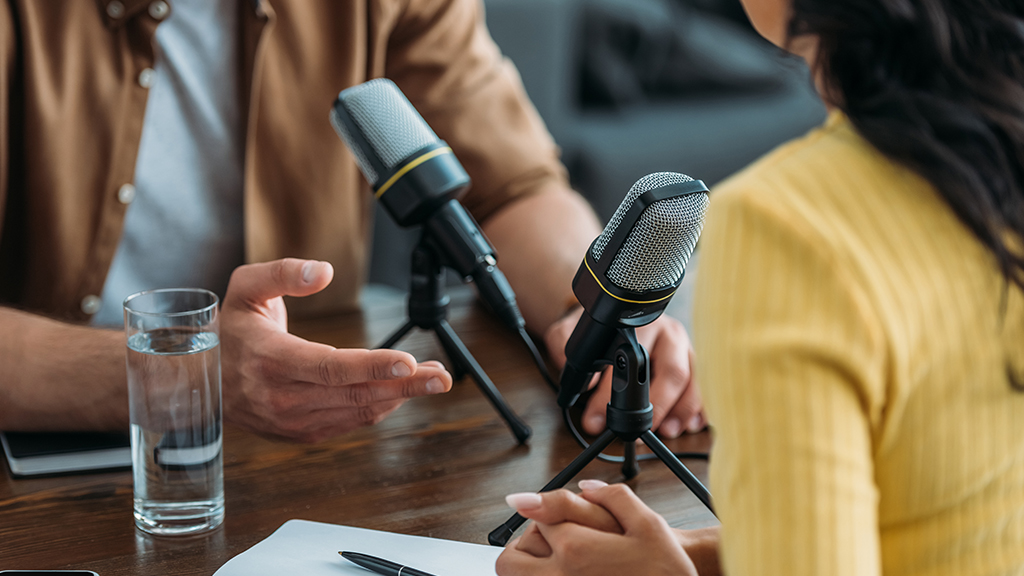
PHOTO CREDIT: LIGHTFIELD STUDIOS/STOCK.ADOBE.COM
Like many people who work in school communications, Ryan Foran started his professional life as a journalist before making the transition to public education in 2013. But Foran hesitated, at least initially, when he was asked to provide professional development to staff on social media and media relations.
Then he learned one of the mottos of school public relations: Steal without guilt.
“I’m a competitive person who takes that into my work. I was used to working in the private sector, and I didn’t want to give up the secrets of my sauce,” says Foran, now chief communications officer for California’s Arcadia Unified School District. “That was my mindset, but once I understood the value that is placed on collaboration, both in my school district and the profession as a whole, I was all in.”
Today, Foran is quick to share what he has learned, both with the students in the digital communications internship program he created and runs at Arcadia High School and through a podcast designed for school communications professionals. The two efforts, both of which have been nationally recognized, serve as resources for school public relations professionals who are constantly looking for ways to do more with less.
Internship program
Arcadia serves 9,000 students in a San Gabriel Valley community about 15 miles northeast of downtown Los Angeles. The district has 11 schools and two communications staff.
Foran started the internship program while working as the district’s public information officer in 2015. The program is designed for advanced communications and journalism students, but it’s open to all who successfully apply and interview. It focuses on broadcast, print, and digital journalism as well as communications, marketing, media and public relations, podcasting, crisis communications, social media, and event planning.
“The way to communicate what’s happening in your school is through storytelling, and a one-person or two-person team can’t do that,” Foran says. “This program allows us to continuously brand our schools through storytelling and train students who are interested in pursuing this on the skills they will need in college and beyond.”
On average, the student interns—the program averages 23 per semester—cover more than 150 district events each year. The internships, which Foran compares to an Advanced Placement level course, are unpaid but students receive experience, training, and letters of recommendation if they complete the program successfully.
“One year they covered more than 200 events, and the school year had only 186 days, so you can imagine the effect that had on our communications efforts,” Foran says. “It’s been a huge boost to the work we do here.”
Podcasting
Foran spent almost 15 years in television, mostly in California, and briefly owned his own communications business before moving to Arcadia full time in 2013. He blogged and did a podcast about health and fitness, then realized that the platform would provide a good service to school communicators.
Launched in 2018, the School PR Podcast covers a wide swath of topics of interest to communicators and educators, ranging from social media strategies to dealing with crises and other districtwide issues. More than 80 episodes are available for download on all podcast platforms (Apple, Spotify, etc.).
Foran’s podcast is not the only one dedicated to school public relations, but it was one of the first when it started. The podcast episodes have been downloaded more than 13,000 times. The most popular topics: website accessibility and why Facebook is safe for schools to use.
“We saw the importance of communication, good communication, during the pandemic because it was a lifeline to our staff and communities,” Foran says, noting that the podcast has grown significantly over the past two years. “At the same time, we have so many new people who’ve come into our field that we’ve seen a lot of people rediscovering the topics we have covered.”
In each episode, Foran interviews a subject matter expert; topics are selected based on what he sees on various listservs and social media groups he follows. Foran has not been afraid to broach controversial subjects, such as whether school officials should talk to reporters off the record.
“The goal is to provide information on relevant topics and give practitioners, including board members and superintendents, tangible takeaways that they can implement right away,” says Foran, who has covered topics as diverse as student mental health and the rise of ChatGPT in recent months. “You can make a huge impact if you find ways to help educators get connected with the resources they need.”
A decade into his school public relations career, Foran looks at the work he does with gratitude.
“I loved journalism and news reporting. I started out doing sports, then news, and then I burned out on it,” he says. “At the time, I wondered if I was even qualified to do anything else, but then the opportunity to work on this side with schools came along, and I saw that this work could make a difference.”
Once he learned to share, of course.
“One thing that has surprised me is that often the response we get is delayed,” he says. “I’ll see someone at a conference, and they will tell me they appreciated an episode I did two years earlier. It doesn’t matter when you listen. It’s nice to know that we have a lot of good, tangible ideas available so you can make your school district better tomorrow.”
Glenn Cook (glenncook117@gmail.com), a contributing editor to American School Board Journal, is a freelance writer and photographer in Northern Virginia. He also spent five years as a communications director for a North Carolina school district.

Share this content